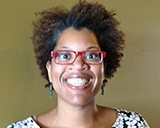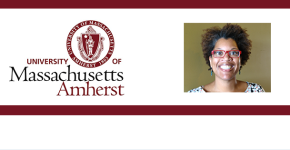 Black colleges are doing great things for their students, so why does a negative view persist?
Black colleges are doing great things for their students, so why does a negative view persist?
Melissa Wooten, associate professor of sociology at UMass Amherst, explores this question.
Melissa E. Wooten is an Associate Professor of Sociology at the University of Massachusetts, Amherst. She studies how the structure of race and racism influences organizational development.
Her book In the Face of Inequality: How Black Colleges Adapt (2015 SUNY Press) empirically examines how racism disadvantages organizational actors preventing them from gaining critical financial and political resources.
Are Black Colleges Necessary?
“Are black colleges necessary?” is a question that is all too familiar to researchers of these schools. Those choosing to attend historically black colleges and universities know first hand that many openly question the place and contribution of these schools. But why is this so?
Sociological research shows that onlookers perceive predominantly black settings as violent, disorderly, and impoverished regardless of their actual state. Given this, questioning the necessity of black colleges becomes a reflex, a seemingly natural reaction to yet another predominantly black space. Just as black neighborhoods must be worse than white ones, black colleges must be understood as inferior to and less than predominantly white colleges – even if this is not objectively true. To suggest otherwise is an explicit challenge to a racial hierarchy that privileges whiteness.
Though they account for a relatively small proportion, 3%, of U.S. colleges and universities, black colleges are responsible for roughly 20% of all black bachelor degree holders and 40% of blacks earning STEM undergraduate degrees. Eighty-five percent of black medical doctors attend a black college at some point in their educational career. Forty percent of black doctoral degree holders earned their bachelor’s degree at a black college. Black colleges have a disproportionate affect on the American educational landscape.
These statistics beg the question of why it is so difficult to conceive of black colleges as prestigious entities worthy of the same level of respect and accord given to so called “mainstream” or predominantly white colleges. Most importantly, these statistics demonstrate that historically black colleges and universities are relevant to the production of highly educated, successful black Americans.
Read More:
In the Face of Inequality: How Black Colleges Adapt (SUNY Press)


Comments
One response to “Melissa Wooten, University of Massachusetts Amherst – Are Black Colleges Necessary”
When I left Tougaloo College for the U. of VT, I had to water down my difficult “Methods and Statistics of Social Research” course. Just sayin’….